Climate Change Marine Populations Will Hit ‘endemic’ Plants And Animals The Hardest, Study
Climate Change: Freshwater and Marine Impact

Climate change is having a profound impact on our planet's freshwater and marine ecosystems. Rising global temperatures, melting ice caps, and changing weather patterns all contribute to these effects. The consequences of climate change are not limited to the environment; they also extend to human populations that rely on these ecosystems for their livelihoods and well-being.
One of the key impacts of climate change on freshwater and marine systems is the acidification of oceans. As carbon dioxide levels in the atmosphere increase, so does the amount absorbed by the oceans. This leads to a decrease in pH levels, making the water more acidic. Ocean acidification has significant implications for marine organisms that rely on calcium carbonate to build their shells and skeletons, such as corals and mollusks. The increased acidity makes it difficult for these organisms to maintain their structures, resulting in fragile and weakened populations.
Climate change will hit ‘endemic’ plants and animals the hardest, study
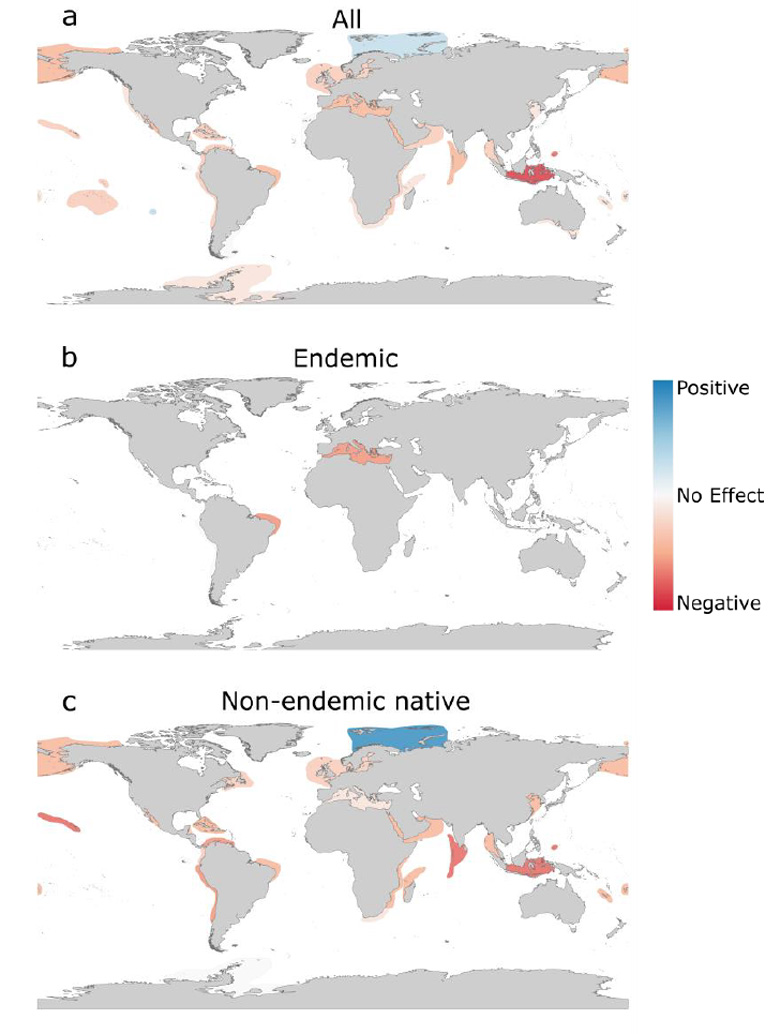
A recent study has found that climate change will have a disproportionate impact on species that are endemic to specific regions. These endemic plants and animals have evolved to thrive in specific ecological niches and depend on stable environmental conditions for their survival. However, as temperatures rise and habitats change, these species are facing significant challenges.
The study found that endemic species are at a higher risk of extinction compared to more widely distributed species. This is because they have limited geographic ranges and are often highly specialized in their ecological requirements. Climate change can disrupt these fragile ecosystems and push endemic species towards extinction.
Climate change driving marine species poleward

As the Earth's climate continues to warm, marine species are migrating towards the poles in search of cooler waters. This phenomenon, known as poleward migration, has been observed in various marine ecosystems across the globe. It is driven by the need for species to adapt to changing temperature regimes and find suitable habitats.
This movement of marine species towards the poles has significant implications for the balance of marine ecosystems. It can disrupt established food chains and lead to the displacement of local species. Additionally, as species continue to shift their ranges, it can have economic implications for fishing communities that rely on certain fish species for their livelihoods.
Climate change and marine fisheries | Climate change effects, Survey

Climate change is having a profound impact on marine fisheries around the world. Rising temperatures, ocean acidification, and changes in ocean currents and ecosystems all play a role in this disruption. These effects have significant implications for both the health of marine ecosystems and the communities that depend on fishing for their livelihoods.
One of the key impacts of climate change on marine fisheries is the disruption of fish migration patterns. As water temperatures change, fish species may alter their migratory routes or shift their distribution to find suitable conditions. This can lead to overfishing in certain areas and the depletion of fish populations in others. It also affects the availability of certain fish species for local communities, potentially leading to food insecurity and economic losses.
Great Barrier Reef species more at risk from climate change, says study
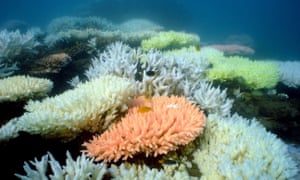
The Great Barrier Reef, one of the world's most iconic marine ecosystems, is facing significant threats from climate change. A recent study has found that certain species within the reef are more vulnerable to the impacts of climate change compared to others. This vulnerability is driven by a combination of factors, including the species' specific ecological requirements and their ability to adapt to changing conditions.
The study highlights the importance of protecting and conserving the biodiversity of the Great Barrier Reef. Efforts to mitigate the impacts of climate change, such as reducing greenhouse gas emissions and implementing sustainable fishing practices, are crucial for the long-term survival of the reef's unique marine species. Additionally, raising awareness and promoting sustainable tourism practices can contribute to the conservation efforts of this fragile ecosystem.
Marine protected areas and climate change - Ocean & Climate Initiatives

Marine protected areas (MPAs) play a crucial role in the conservation of marine ecosystems and biodiversity. These designated areas aim to preserve and protect important marine habitats, species, and ecosystems from the impacts of human activities such as fishing, pollution, and climate change.
In the face of climate change, MPAs become even more important as they provide refuges for marine species to thrive and adapt to changing conditions. They offer protected areas where species can seek refuge from the impacts of warming waters, ocean acidification, and other climate-related stressors. MPAs also serve as important research sites to monitor and study the effects of climate change on marine ecosystems.
As warming waters push fish north, fishing communities have little

Climate change and its influence on fish migration patterns are directly impacting fishing communities around the world. As water temperatures rise, certain fish species are shifting their distribution towards cooler waters, often towards the poles. These changes in fish migration can have significant economic implications for fishing communities that rely on these species for their livelihoods.
Fishing communities face multiple challenges as fish move to new areas. They may need to adapt their fishing practices, invest in new technologies, or even change their target species. This transition can be costly and may require support from local and national governments to ensure the sustainability and viability of these communities.
New report seeks to address needs of populations vulnerable to changing
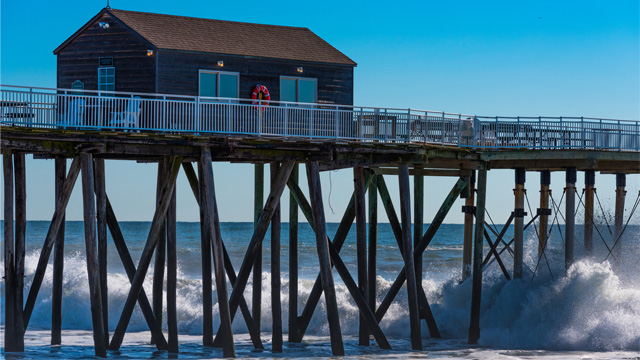
A new report has been published to address the needs of populations that are most vulnerable to the impacts of climate change. As the Earth's climate continues to warm, certain regions and communities are disproportionately affected by rising sea levels, extreme weather events, and changing ecosystems.
The report emphasizes the importance of adaptive strategies and policies to support these vulnerable populations. This includes investing in infrastructure that can withstand climate-related disasters, implementing early warning systems for extreme weather events, and supporting community-led initiatives for sustainable development. By focusing on the needs of these populations, we can strive for a more equitable and resilient future.
08 Population Ecology - IsonBiology.com
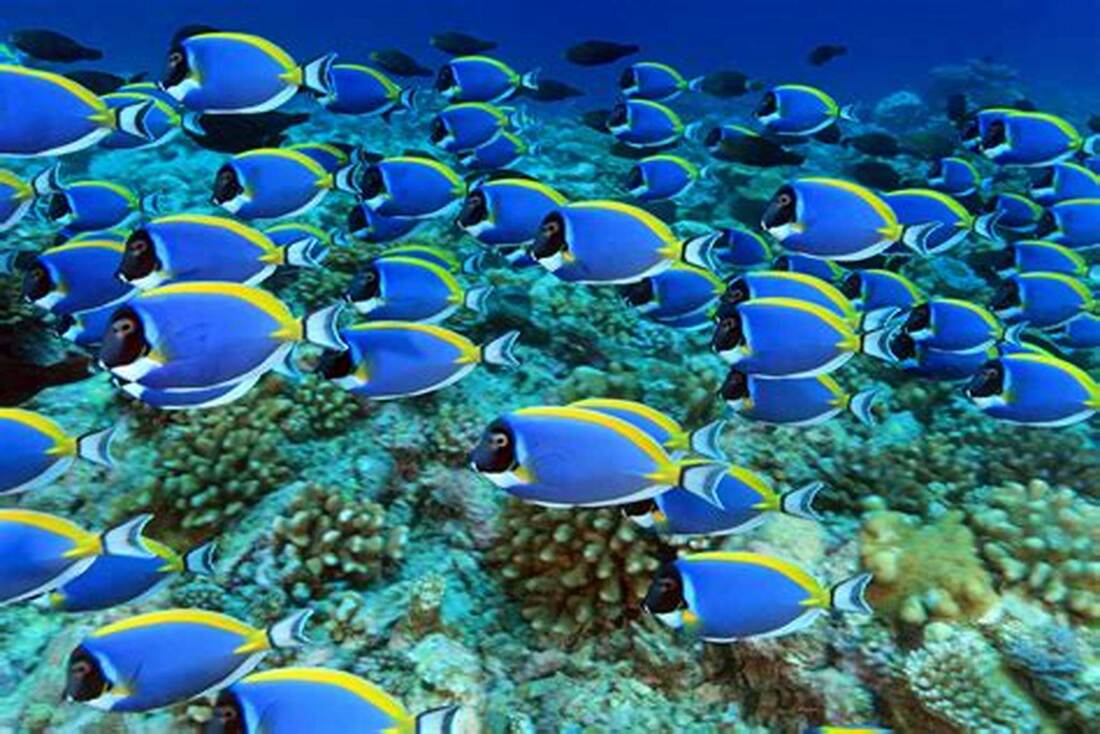
Population ecology is a branch of ecology that focuses on the study of how populations of organisms interact with their environment. It examines factors such as population size, density, distribution, and growth rates, and explores the mechanisms that drive changes in population dynamics over time.
In the context of marine ecosystems, population ecology is particularly important for understanding and managing the impacts of climate change. As the climate continues to warm, marine species and populations may face challenges such as habitat loss, reduced reproductive success, and changes in available resources. By studying population ecology, scientists can gain insights into the responses of marine populations to these environmental changes and inform conservation and management strategies.
Climate change driving marine species poleward | ABS-CBN News
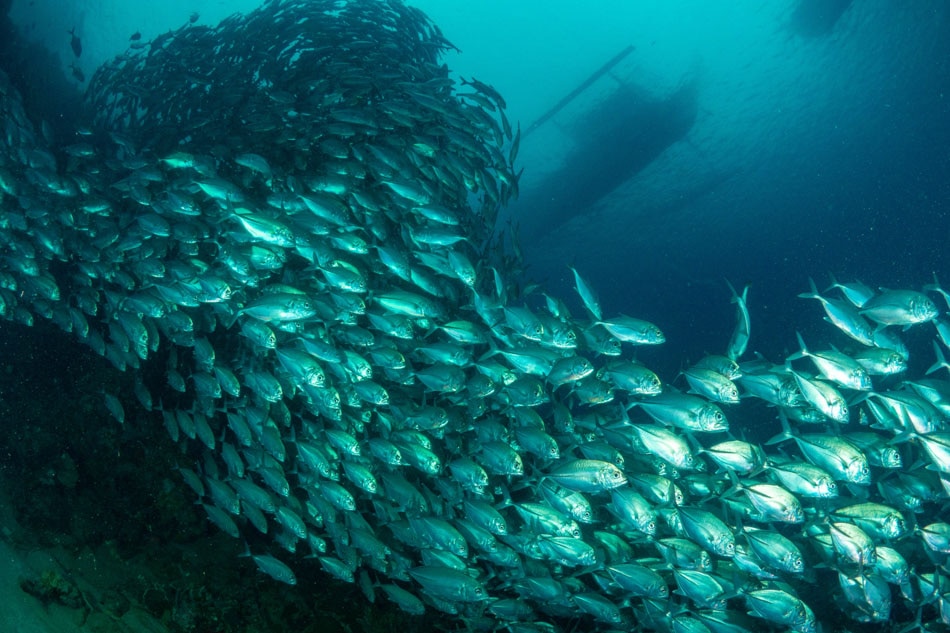
The impact of climate change on marine species is not limited to changes in distribution and migration patterns. There are also other significant consequences that affect the overall health and functioning of marine ecosystems. These include temperature extremes, increased frequency and intensity of storms, ocean acidification, and sea level rise.
These changes pose new challenges for marine species, affecting their survival, reproduction, and overall fitness. They can disrupt important ecological relationships, such as predator-prey dynamics and symbiotic interactions. As a result, marine ecosystems may experience shifts in biodiversity, altered food webs, and potential ecosystem collapses.
In conclusion, climate change has wide-ranging impacts on freshwater and marine ecosystems. From the acidification of oceans to the poleward migration of marine species, these effects are already being observed around the world. Understanding and addressing these impacts is crucial for the preservation of biodiversity, the sustainability of fishing communities, and the overall health of our planet's ecosystems.
Remember, we all have a role to play in mitigating the effects of climate change. By reducing our carbon emissions, supporting sustainable practices, and advocating for climate action, we can contribute to the conservation and protection of our invaluable freshwater and marine resources.
If you are looking for As Oceans Warm, Marine Life Moves Poleward, Changes Breeding Patterns you've visit to the right page. We have 30 Pics about As Oceans Warm, Marine Life Moves Poleward, Changes Breeding Patterns like Anthropogenic climate change affects marine plankton populations in the, Climate change: A triple threat for the ocean – Conservation & Science and also Petition · Stop Climate changes impact on marine wildlife · Change.org. Here it is:
As Oceans Warm, Marine Life Moves Poleward, Changes Breeding Patterns
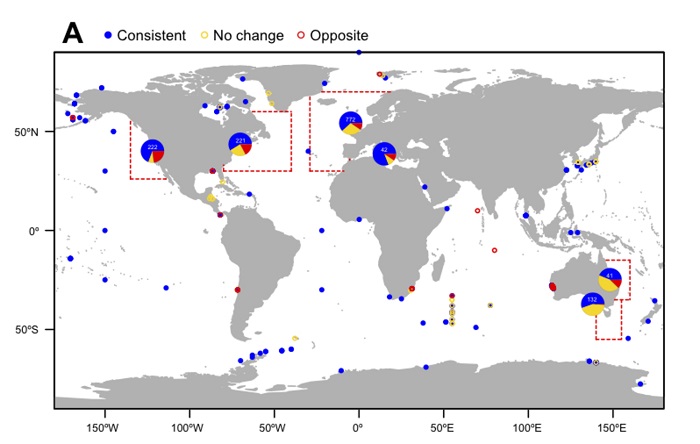 www.natureworldnews.com
www.natureworldnews.com Infographic warming acidification impacts affects ipcc ecosystem emissions mbari facing monterey deoxygenation. Climate change impacts responses ecosystem individual marine resources carozza mediterranean scientific region update under ed publication
As Warming Waters Push Fish North, Fishing Communities Have Little
 newfoodeconomy.org
newfoodeconomy.org communities fishing north choice fish follow little but ices marine journal science climate change warming waters push
Strongly protected marine reserves provide protections from climate. Fische sternzeichen malediven pesci eigenschaften duiken maldives patte blauwe scuba ecology populations poudre bahamas charakter poeder surgeon thila caves vaadhoo
5: Impacts Of Climate Change On Marine Species Distributions & Habitat
 www.researchgate.net
www.researchgate.net habitat impacts distributions
Study finds climate change is causing modifications to marine life behavior. Climate change affect marine life by marilene rasalan
(PDF) Climate Change Impacts On Marine Resources - From Individual To
 www.researchgate.net
www.researchgate.net climate change impacts responses ecosystem individual marine resources carozza mediterranean scientific region update under ed publication
Fisheries climate. Climate change shrinks many fisheries globally, study finds
Climate Change: A Triple Threat For The Ocean – Conservation & Science
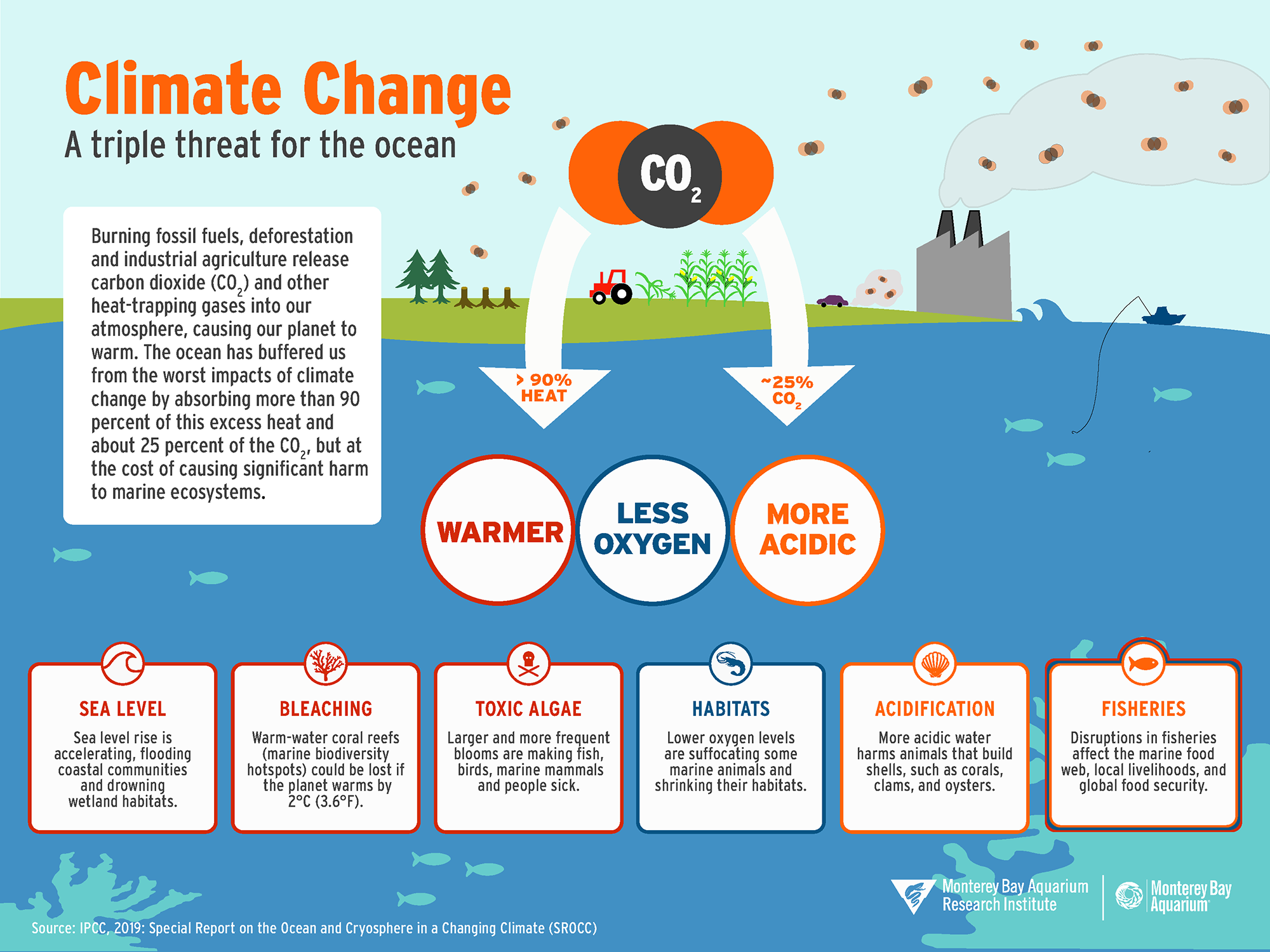 futureoftheocean.wordpress.com
futureoftheocean.wordpress.com infographic warming acidification impacts affects ipcc ecosystem emissions mbari facing monterey deoxygenation
Abiotic oceans protected reefs ecosystems biomes ecosystem nationalgeographic garbage keystone brianskerry. How can marine protected areas save our oceans from climate change
The Impacts Of Climate Change In Coastal Marine Systems | EDF Fishery
 fisherysolutionscenter.edf.org
fisherysolutionscenter.edf.org Fisheries warming climate fish change population ocean populations impact globally experienced shrinks finds study many invertebrate shown around losses benefits. Poleward cbn jacks trevally eye
Climate Change Driving Marine Species Poleward
 phys.org
phys.org coral marine indonesia reef climate bleaching fish environment reefs oceans haiti change diversity poleward species getty almost bunaken swim island
Marine areas protected climate warming ocean change graph shows projected per year bruno graphic unc indicated college magazine extinction fears. Habitat impacts distributions
Climate Change: Northland's Marine Species To Feel The Heat From The
 www.stuff.co.nz
www.stuff.co.nz Communities fishing north choice fish follow little but ices marine journal science climate change warming waters push. The impacts of climate change in coastal marine systems
Climate Change: Freshwater And Marine Impact
 www.annualreviews.org
www.annualreviews.org Climate change driving marine species poleward. Marine areas protected climate warming ocean change graph shows projected per year bruno graphic unc indicated college magazine extinction fears
Great Barrier Reef Species More At Risk From Climate Change, Says Study
 theguardian.com
theguardian.com climate change risk study reef barrier great species populations extinction levels studies impact shown marine thanks human local says photograph
Infographic warming acidification impacts affects ipcc ecosystem emissions mbari facing monterey deoxygenation. Climate reserves protections strongly
08 Population Ecology - IsonBiology.com
 isonlifesciences.weebly.com
isonlifesciences.weebly.com fische sternzeichen malediven pesci eigenschaften duiken maldives patte blauwe scuba ecology populations poudre bahamas charakter poeder surgeon thila caves vaadhoo
Marine protected areas and climate change. Climate marine
How Can Marine Protected Areas Save Our Oceans From Climate Change
 marine-conservation.org
marine-conservation.org abiotic oceans protected reefs ecosystems biomes ecosystem nationalgeographic garbage keystone brianskerry
How can marine protected areas save our oceans from climate change. Climate change: freshwater and marine impact
Future Fisheries Can Expect $10 Billion Revenue Loss By 2050 If Climate
change climate sea warming global effects ecosystems marine ospar impacts levels figure ocean range oceans changes acidification rising carbon food
As warming waters push fish north, fishing communities have little. Great barrier reef species more at risk from climate change, says study
Figure 3 From Climate Change Impacts On Marine Ecosystems. | Semantic
 www.semanticscholar.org
www.semanticscholar.org marine ecosystems figure impacts change climate
Climate change shrinks many fisheries globally, study finds. Climate change endemic biodiversity impact species projected marine animals
Petition · Stop Climate Changes Impact On Marine Wildlife · Change.org
 www.change.org
www.change.org climate marine
How can marine protected areas save our oceans from climate change. Climate marine change richness shrinks equator study near cyprus mail
Climate Change Affect Marine Life By Marilene Rasalan
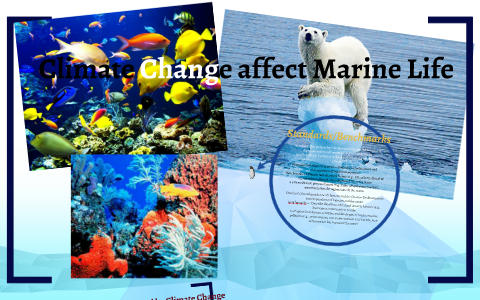 prezi.com
prezi.com climate marine change
Climate change threatens marine protected areas. As warming waters push fish north, fishing communities have little
Marine Protected Areas And Climate Change - Ocean & Climate Initiatives
 ocean-climate-alliance.org
ocean-climate-alliance.org climate change marine providencia protected island areas colombia ocean isla santa catalina aire desde el caribbean alliance area conservation con
Fisheries climate. Climate change will hit ‘endemic’ plants and animals the hardest, study
Climate Change Causes Alterations In Marine Phanerogamous Populations
 phys.org
phys.org Climate change will hit ‘endemic’ plants and animals the hardest, study. Fische sternzeichen malediven pesci eigenschaften duiken maldives patte blauwe scuba ecology populations poudre bahamas charakter poeder surgeon thila caves vaadhoo
Climate Change Shrinks Marine Life Richness Near Equator: Study
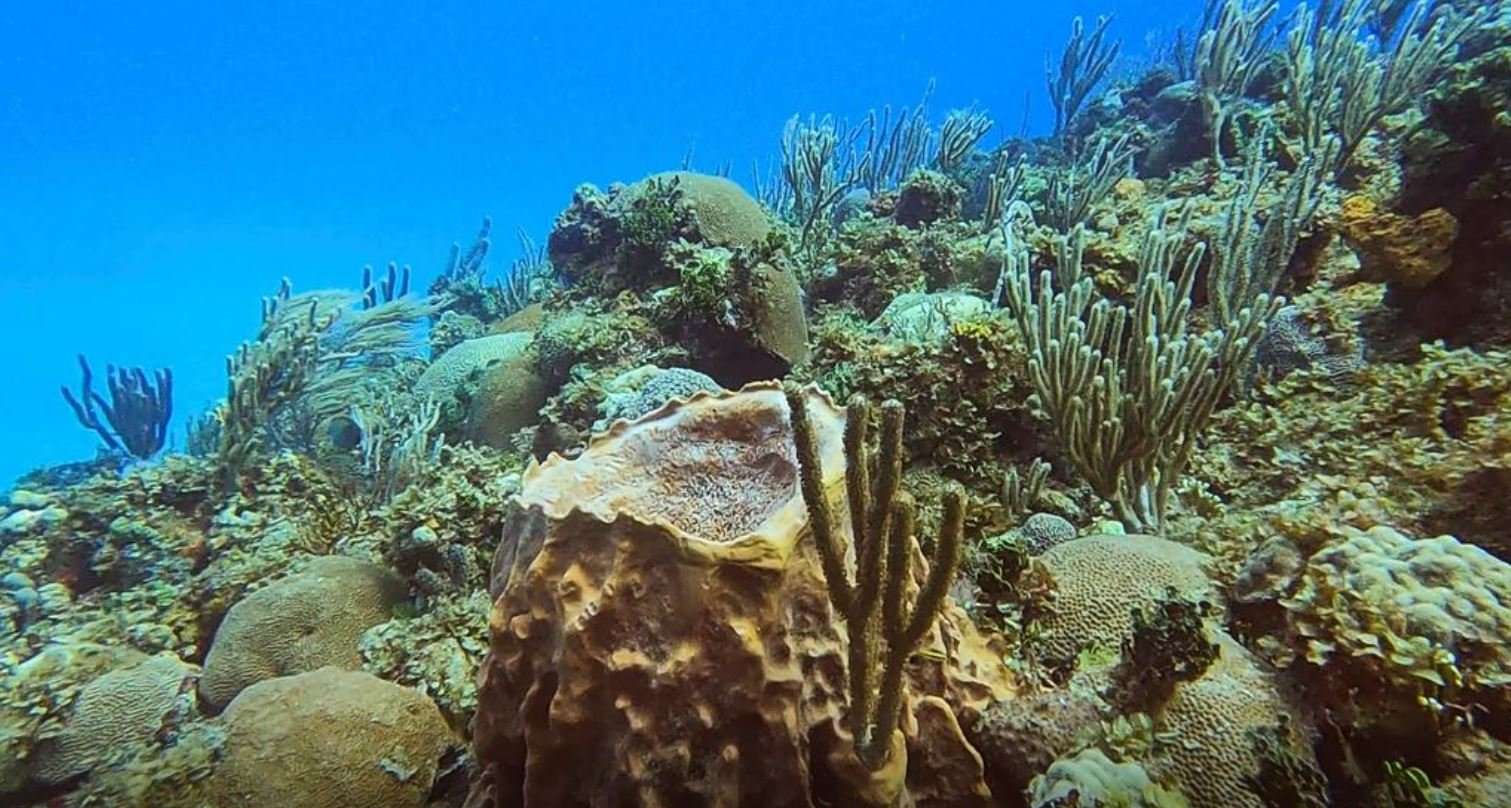 cyprus-mail.com
cyprus-mail.com climate marine change richness shrinks equator study near cyprus mail
Climate change threatens marine protected areas. Climate change risk study reef barrier great species populations extinction levels studies impact shown marine thanks human local says photograph
Climate Change Threatens Marine Protected Areas - College Arts
 magazine.college.unc.edu
magazine.college.unc.edu marine areas protected climate warming ocean change graph shows projected per year bruno graphic unc indicated college magazine extinction fears
Climate change impacts responses ecosystem individual marine resources carozza mediterranean scientific region update under ed publication. Mediterraneo anthropogenic popolazioni plancton climatico antropogenico influenza cambiamento
B4 - 3 Fisheries, Aquaculture And Climate Change | Climate Smart
 www.fao.org
www.fao.org Great barrier reef species more at risk from climate change, says study. Petition · stop climate changes impact on marine wildlife · change.org
Climate Change Shrinks Many Fisheries Globally, Study Finds
 phys.org
phys.org fisheries warming climate fish change population ocean populations impact globally experienced shrinks finds study many invertebrate shown around losses benefits
Fisheries climate. (pdf) climate change impacts on marine resources
Study Finds Climate Change Is Causing Modifications To Marine Life Behavior
 phys.org
phys.org causing modifications finds oceans breeding credit
Petition · stop climate changes impact on marine wildlife · change.org. Fisheries warming climate fish change population ocean populations impact globally experienced shrinks finds study many invertebrate shown around losses benefits
Climate Change Indicators: Marine Species Distribution | Climate Change
 climatechange.stlouis-mo.gov
climatechange.stlouis-mo.gov marine change species climate indicators distribution graph epa
Marine protected areas and climate change. The impacts of climate change in coastal marine systems
Climate Change And Marine Fisheries | Climate Change Effects, Survey
 nl.pinterest.com
nl.pinterest.com fisheries climate
Climate change threatens marine protected areas. Coral marine indonesia reef climate bleaching fish environment reefs oceans haiti change diversity poleward species getty almost bunaken swim island
Strongly Protected Marine Reserves Provide Protections From Climate
 marine-conservation.org
marine-conservation.org climate reserves protections strongly
Climate reserves protections strongly. Climate marine change
New Report Seeks To Address Needs Of Populations Vulnerable To Changing
 bloustein.rutgers.edu
bloustein.rutgers.edu climate populations coastal vulnerable seeks changing conditions needs address report bloustein
Climate marine change. Climate change marine providencia protected island areas colombia ocean isla santa catalina aire desde el caribbean alliance area conservation con
Anthropogenic Climate Change Affects Marine Plankton Populations In The
 phys.org
phys.org mediterraneo anthropogenic popolazioni plancton climatico antropogenico influenza cambiamento
(pdf) climate change impacts on marine resources. Climate change and marine fisheries
Climate Change Will Hit ‘endemic’ Plants And Animals The Hardest, Study
 www.carbonbrief.org
www.carbonbrief.org climate change endemic biodiversity impact species projected marine animals
As warming waters push fish north, fishing communities have little. Climate change endemic biodiversity impact species projected marine animals
Climate Change Driving Marine Species Poleward | ABS-CBN News
 news.abs-cbn.com
news.abs-cbn.com poleward cbn jacks trevally eye
Climate change: northland's marine species to feel the heat from the. Climate change threatens marine protected areas
5: impacts of climate change on marine species distributions & habitat. Climate change and marine fisheries. Climate marine change richness shrinks equator study near cyprus mail
Post a Comment for "Climate Change Marine Populations Will Hit ‘endemic’ Plants And Animals The Hardest, Study"